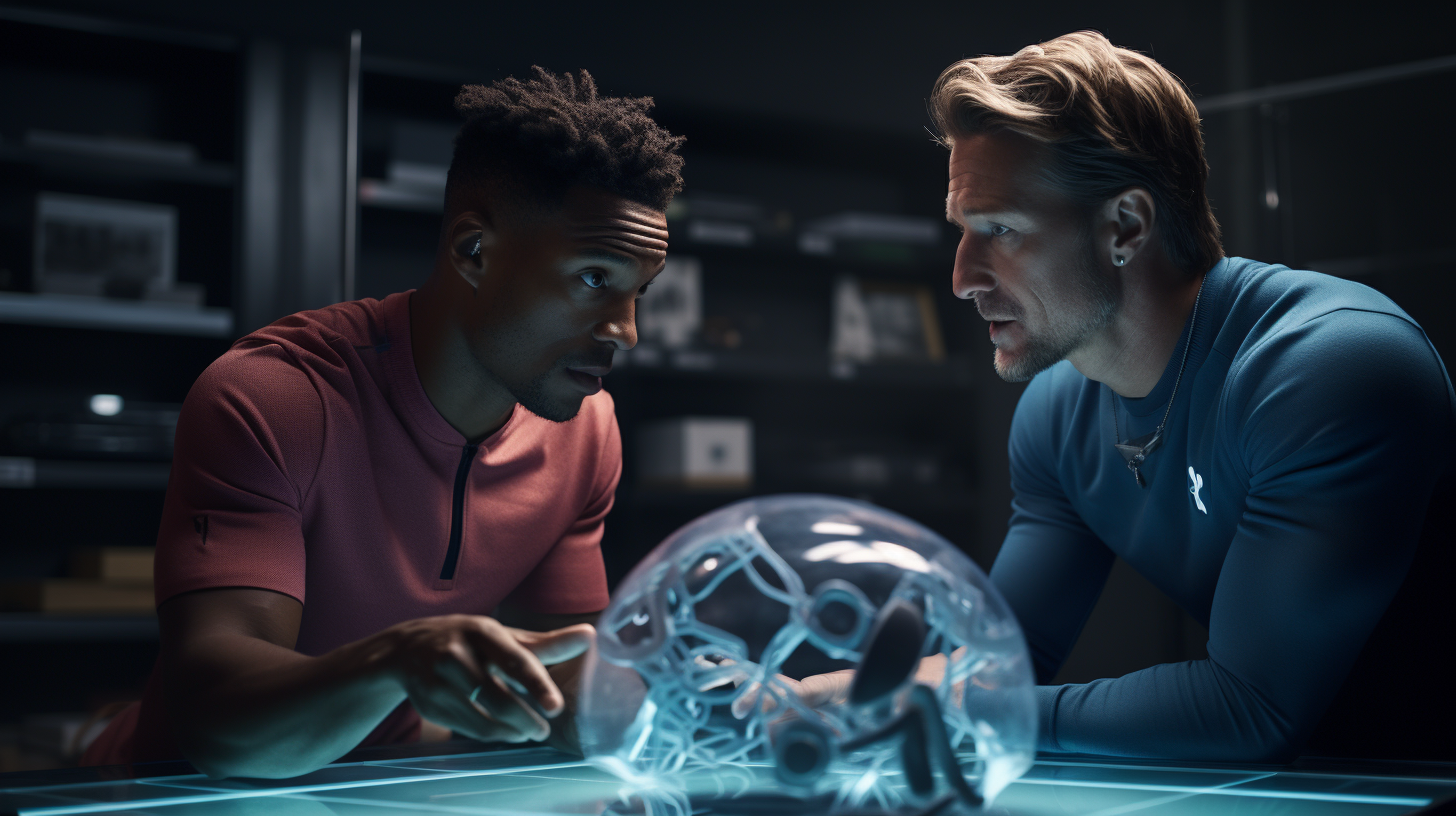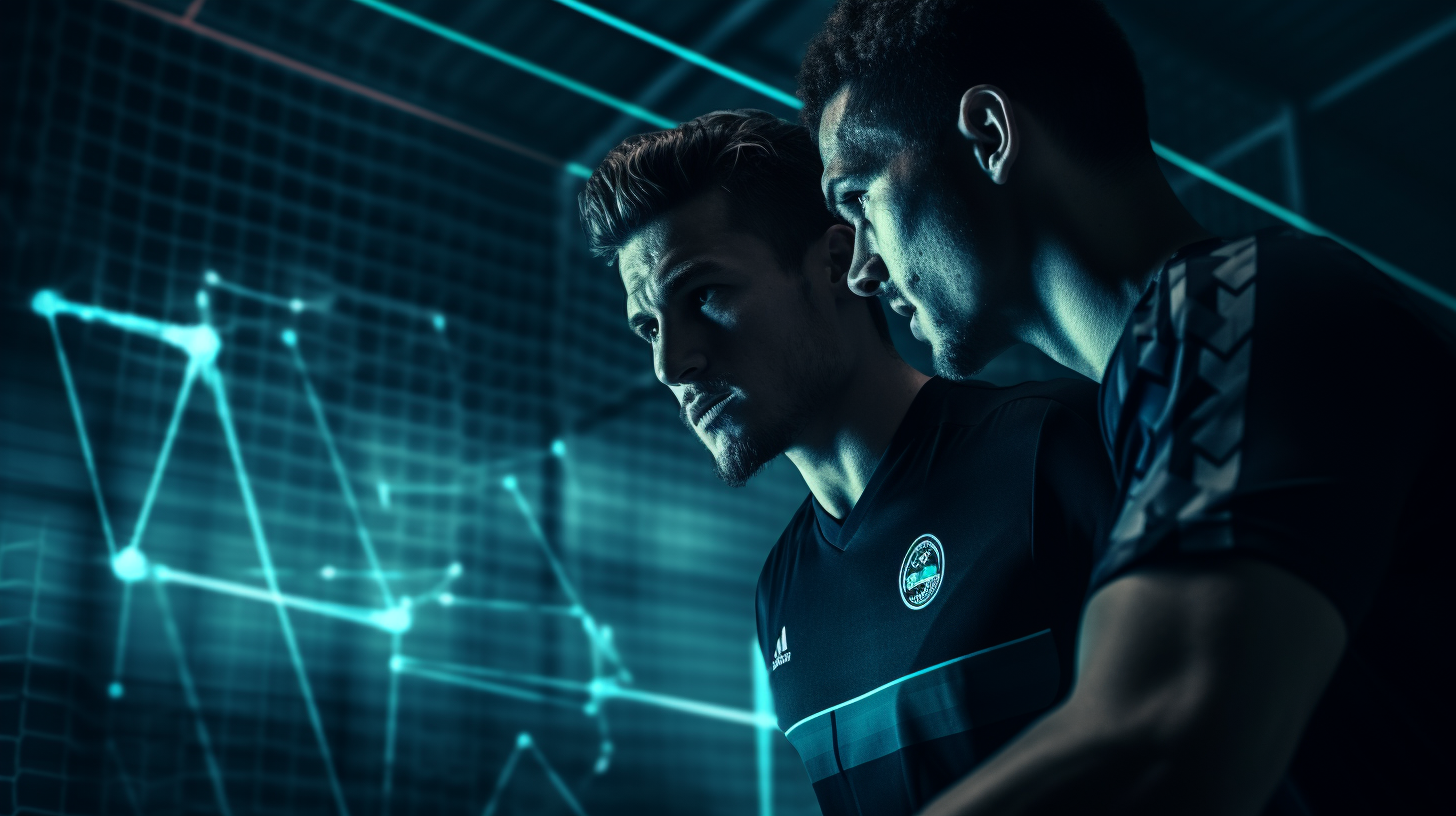Adapting Cognitive Tasks for Concussed Athletes: A New Frontier in Recovery
At Soma, we recognize the diversity of concussion impacts. That's why our cognitive tasks are not static; they're dynamic, evolving with the athlete's recovery journey.

In the competitive arena of athletics, concussions are an unavoidable risk, bringing a complex interplay of physical and cognitive challenges. The road to recovery is not just about healing physically; it's equally about regaining cognitive strength and agility. Here, the role of cognitive training becomes critical, going beyond the traditional rehabilitation routines.
This is where Soma makes its mark, transforming the landscape of cognitive rehabilitation for athletes. At Soma, we understand that every concussion is different and every athlete's journey to recovery is unique. Our approach is centered around this belief, ensuring that every cognitive test, strategy, and task is carefully tailored to meet individual needs, addressing specific symptoms like mental fatigue and optimizing cognitive data for a smoother, more effective recovery.
The Importance of Customization in Post-Concussion Recovery
When an athlete suffers a concussion, the impact goes beyond just a temporary setback; it's a disruption that can affect their cognitive function, often leading to symptoms like mental fatigue and a decline in cognitive performance. In these critical moments, a personalized approach to cognitive rehabilitation is not just beneficial; it's essential.
At Soma, we recognize the diversity of concussion impacts. That's why our cognitive tasks are not static; they're dynamic, evolving with the athlete's recovery journey. By customizing each cognitive test and training task, we ensure that they align perfectly with the athlete's current cognitive data, providing a challenging yet achievable path to recovery. This individualized approach helps athletes not only recover more effectively but also regain their confidence and cognitive abilities more quickly and efficiently.
Data-Driven Approach: Key to Effective Training
In the realm of concussion recovery, the saying "knowledge is power" holds true. At Soma, our methods are deeply rooted in data. By continuously monitoring and analyzing cognitive data such as reaction times, accuracy, and the athlete's subjective reports of mental fatigue, we create a nuanced understanding of their current cognitive state. This data-driven insight is crucial for customizing cognitive tasks effectively.
The beauty of this approach lies in its flexibility. If an athlete's cognitive test results show a certain trend, our system adapts the tasks accordingly. This ensures that the cognitive load is neither too overwhelming nor too underwhelming, striking the right balance for optimal recovery. In essence, this data-centric approach allows for a constantly evolving training regimen that is as dynamic and resilient as the athletes we support.


Evolution of Cognitive Tasks
Traditionally, cognitive tasks were set in stone, frequently repeated with little room for adaptation. This one-size-fits-all method, foundational as it was, often overlooked the nuanced needs of athletes, particularly those recovering from concussions. Such rigidity could lead to stagnation, not just in terms of progress but also in the athlete's engagement and motivation.
Soma heralds a new era in this landscape. We've moved beyond the confines of traditional cognitive training, embracing a philosophy where adaptability and personalization are at the core. This shift is not just a change in techniques; it's a paradigm shift in how we view and approach cognitive recovery in athletes. Our methods are not static; they evolve, mirroring the athlete's recovery path, ensuring that every step taken is in sync with their current capabilities and goals. This dynamic approach marks a significant leap from the past, placing athletes' unique needs and recovery processes at the forefront of their training.
Exploring the Versatility of Soma Analytics and Modes
Soma's strength in cognitive training lies in its high level of specificity and adaptability. With a suite of diverse modes, Soma Analytics offers a detailed, data-driven approach to crafting cognitive training plans. Each mode is designed to target specific aspects of cognitive function, making them highly effective for athletes, particularly those in concussion recovery. Let's explore these modes to understand how they contribute to a tailored and efficient cognitive rehabilitation process:
- Audiovisual Modes: Provides real-time performance feedback, shaping decision-making behavior. Ideal for influencing decision-making and offering immediate feedback.
- EDM Mode (Error Detection Mode): Focuses on enhancing error detection and reaction time post-error. Longer EDM reaction times suggest deliberate error correction, while a reduced gap between regular and EDM reaction times indicates improvement.
- CSQ Mode (Consequence Mode): Builds mental resilience. A red timer bar indicates an error, adding a 15-second penalty, with further penalties for additional errors.
- DRT Mode (Detection Response Task Mode): Evaluates cognitive effort and attentional resources. Slower DRT reaction times indicate a higher cognitive load, while faster DRT reaction times suggest a lower load.
- TTE Mode (Time to Exhaustion Mode): Gradually increases cognitive challenges over time. Starts with a 3-minute test, ending if reaction time exceeds a set threshold.
- VPF Mode (Variable Performance Feedback Mode): Improves reaction time, concentration, and consistency. Encourages maintaining a response time variation within -/+ 10% for correct responses.
- ADM Mode (Adaptive Mode): Adjusts cognitive challenges based on performance, aligning tasks with the athlete's current cognitive capacity.
- HRZ Mode (Heart Rate Zone): Individuals must maintain a specific heart rate zone during training that has been set via Soma Analytics, pausing the task if the heart rate deviates from the zone.
- CEM Mode (Cognitive Exertion Mode): Integrates heart rate into cognitive tasks, requiring physical exertion to reach a target heart rate to answer the task.
- AHR Mode (Adaptive Heart Rate Mode): Guides athletes through different heart rate zones during their cognitive training, pausing the task if heart rate deviates from the zone.
- AHV Mode (Adaptive Heart Rate Variability Mode): Adjusts challenges based on heart rate variability, increasing difficulty with rising HRV and decreasing as HRV drops.
- TSM Mode (Task Switching Mode): Introduces a secondary task, challenging cognitive agility with task-switching exercises.
- DPM Mode (Deviating Pacing Monitoring): Monitors performance shifts, providing feedback on declines. A pink feedback bar indicates a drop in performance.
- PCM Mode (Physical Consequence Mode): Requires a sprint after incorrect responses, with the heart rate reaching Zone 4 and staying there for over 5 seconds.
- TPM Mode (Time Pressure Modulation): Imposes time constraints on responses, increasing pressure as the user improves.
Implementing Customized Training Regimens
The true effectiveness of Soma's cognitive training modes lies in their proper implementation. Creating a personalized cognitive training plan for an individual, especially one recovering from a concussion, involves more than just selecting the right modes; it requires a deep understanding of the athlete’s current cognitive state, their recovery goals, and how they respond to different challenges.
Key Steps in Creating a Customized Training Plan:
- Assessment of Cognitive State: Begin by assessing the athlete's current cognitive capabilities using a variety of cognitive tests. This initial data forms the foundation of the training plan.
- Selection of Appropriate Modes: Based on the assessment, choose the modes that best address the athlete's needs. For instance, if the athlete struggles with mental fatigue, modes like DRT or AHV might be more beneficial.
- Monitoring and Adjustment: Continuous monitoring of the athlete’s performance is crucial. Utilize Soma’s real-time data analytics to make necessary adjustments, ensuring the training remains challenging yet achievable.
- Feedback and Iteration: Regular feedback from the athlete is vital. Their subjective experience, combined with objective data, helps in fine-tuning the training regimen for optimal results.
- Progressive Overload: As the athlete improves, gradually increase the difficulty of the tasks, ensuring continuous progression and avoiding plateaus in their cognitive development.
Implementing a cognitive training regimen with this level of customization not only aids in a more efficient recovery from concussions but also ensures that the athlete remains engaged and motivated throughout their rehabilitation journey. By leveraging Soma’s analytics and modes, trainers and therapists can create a dynamic, responsive, and ultimately more effective cognitive training environment.
The Future of Cognitive Training in Athletic Recovery
As we look towards the future, the role of personalized cognitive training in athletic recovery, particularly from concussions, is poised to become increasingly significant. The integration of advanced analytics and customizable training modes, as exemplified by Soma, represents a major advancement in this field. This evolution not only improves immediate recovery outcomes but also sets a new standard in preventive care and long-term cognitive health for athletes.
Incorporating these sophisticated training techniques into regular athletic training regimens could potentially reduce the long-term impact of concussions and enhance overall cognitive resilience. As research continues to evolve, we can anticipate further innovations in this space, making recovery faster, more efficient, and tailored to each athlete's specific needs.
Conclusion
In conclusion, Soma's approach to customizing cognitive tasks for athletes recovering from concussions marks a transformative step in sports medicine. By focusing on individual needs, harnessing data-driven insights, and offering a diverse range of adaptable training modes, Soma is leading the way in cognitive rehabilitation. This personalized, flexible approach not only aids in effective recovery but also empowers athletes to regain their cognitive strength, resilience, and confidence.
🌐 Connect With Us
🌍 Soma Technologies: Engineered to enhance human performance.
📸 Instagram: Dive into our world through exclusive photos and stories.
👥 Facebook: Join our community for the latest updates and discussions.
📈 LinkedIn: Connect with us professionally and stay informed about industry news.
🎥 YouTube: Watch our latest videos, tutorials.
🐦 X: Follow us for instant updates, news, and engaging tweets.

